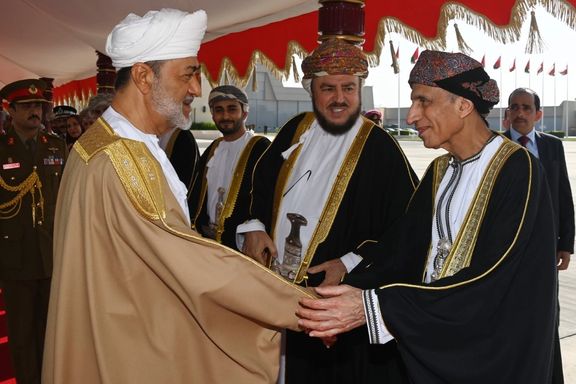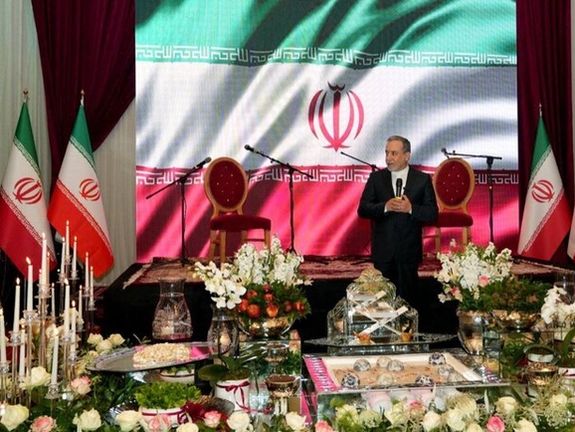For years, the Sultanate has supported diplomatic back-channels between the United States and Iran, and has built up a record as a credible intermediary trusted by both sides.
Rather than act as a mediator, as other regional states such as Qatar have done, and participate in direct talks themselves, the Omani approach is to create the spaces in which dialogue can take place, thus acting more as a facilitator.
A combination of historical and geographical factors explains Oman’s pragmatic facilitation of diplomacy as a key element in its foreign policy approach.
Unlike several of its Gulf neighbors, Oman has not had a history of poor relations with Tehran, and Omanis recall that Iran under the Shah provided important support to Sultan Qaboos during the early years of his reign in the 1970s.
Even after the Iranian revolution ousted the Shah in 1979 and ushered in the theocracy headed by Ayatollah Khomeini, Oman stood aside from the regional rivalries and competition for geopolitical influence in the Gulf.
The contours of Omani foreign policy were usefully set out in 2003 by Sayyid Badr Albusaidi, a career diplomat who became Foreign Minister in 2020.
Albusaidi said "it is possible for a small state to carve out for itself a degree of relative autonomy" and "we try to make use of our intermediate position between larger powers to reduce the potential for conflict in our immediate neighborhood."
Avoiding 'I told you so'
As such, Omani officials have sought to ensure that disputes and flashpoints which have the potential to escalate into outright conflict, and thereby threaten economic and political stability and regional security, can be addressed before they spiral out of control, by leveraging their ability to engage with all sides.
Oman’s support for the backchannel that enabled US and Iranian officials to meet secretly for multiple rounds of talks in 2012 and 2013 is the most well-known example of such facilitation.
The clandestine contacts were detailed by Bill Burns, then Deputy Secretary of State, in his memoir, written before he returned to office as Director of the CIA in 2021. Burns described how the chief of Sultan Qaboos’s court and the head of Omani intelligence "greeted both delegations as we walked into the meeting room" and "offered a few brief words of welcome and then departed."
The talks succeeded in laying the framework for the subsequent P5+1 negotiation which led to the Joint Comprehensive Plan of Action, the Iran nuclear deal, in 2015, from which Trump withdrew in 2018 during his first term.
The JCPOA collapsed in acrimony and appeared to prove Burns’s point when he wrote that Araghchi and his co-delegation leader, Majid Takht-Revanchi, "would sometimes confide in me that they had a Supreme Leader who was just waiting to say 'I told you so' and prove that the Americans could not be trusted."
Secret no more
Omani officials continued to act as periodic intermediaries between Tehran and Washington. This included hosting indirect talks in 2023 and again in 2024 that involved White House Middle East coordinator Brett McGurk and Iranian nuclear negotiator Ali Bagheri that addressed the Houthi attacks on maritime shipping and the tit-for-tat Israeli and Iranian military strikes that threatened all-out regional war.
With this record in mind, it was unsurprising that the Iranian leadership responded to a letter from Trump, delivered by an Emirati intermediary, raising the prospect of talks, through Oman in late-March.
It remains to be seen whether the talks, indirect or direct or possibly a combination of the two, may lead to any form of breakthrough, given the political constraints on both sides and the legacy of decades of distrust.
In addition, the fact that the talks have been very publicly announced is a major departure from the secrecy of the backchannel in 2013 which was more characteristic of Oman’s discreet approach to diplomacy.
The choice of venue and interlocutor nevertheless reaffirm Omani centrality to the dialogue between two arch nemeses who despise each other but trust Muscat.



